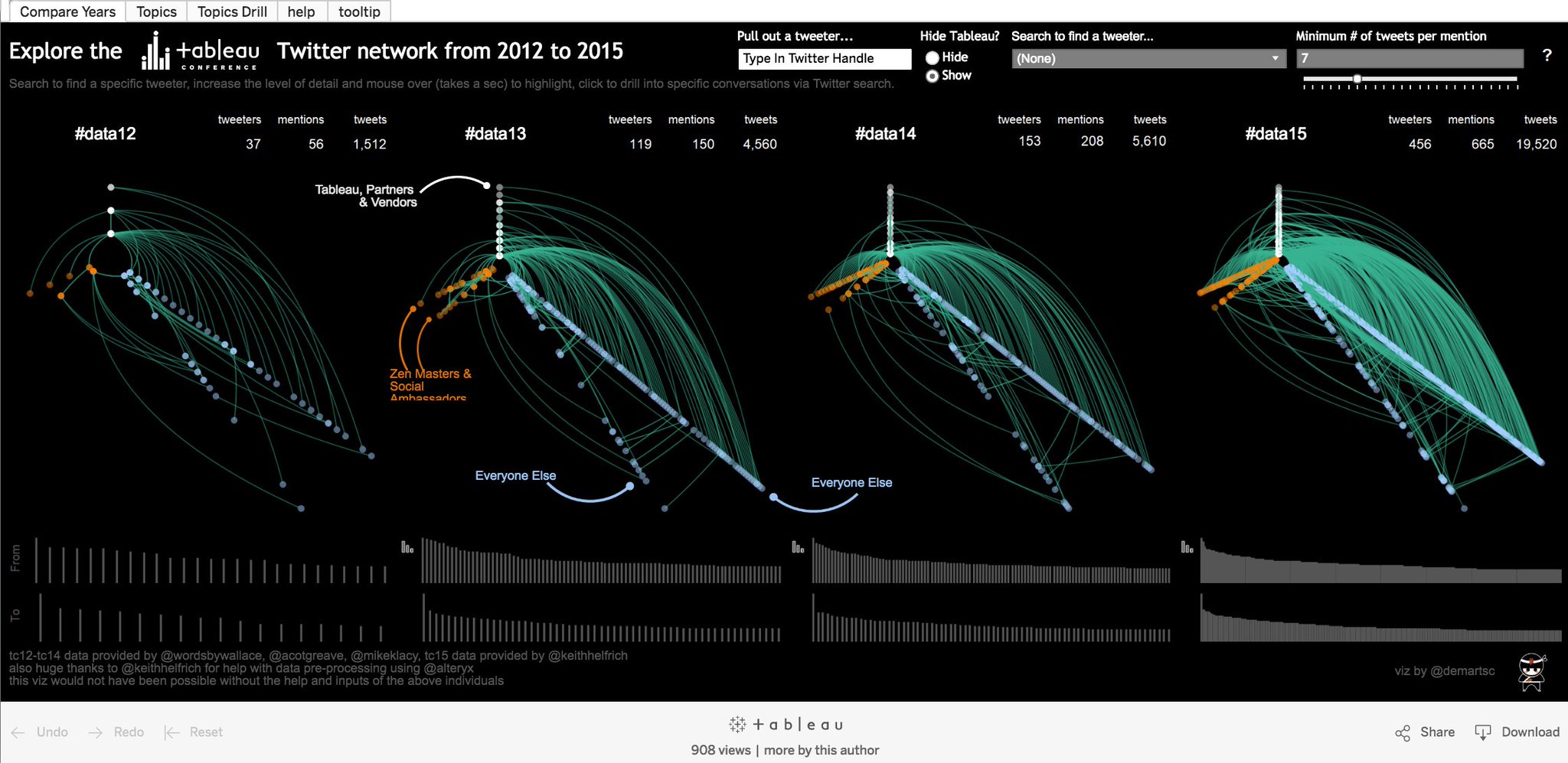Given that it's "back to school" month with Tableau, they're running a hashtag called #DataLessons - Aimed for people who have been working with data, the objective is to share lessons for those just getting started on their data journey.
Given I graduated straight into this field (sorta), and have had a very specific education in this field, I thought I'd share 5 tips - In no particular order;

1. Be Inspired by the Community
Getting started with Tableau *can* be daunting. The first visualisation that I saw that Chris Love had created was his incredible, insane, crazy History of the Football League chart. I remember telling Tom Brown that "He must have used some sort of code" in my interview. But the honest truth is, Tableau Public being the incredible open resource is, if I did want to look under the hood to see what Chris had done, I could - and I still can.
The community is one of the best, best, best parts about Tableau - And I'd argue for those working with data in general. Tableau itself is massively non-aggressive & there are mentors, inspirations and friendly people everywhere from the forums to the Twittersphere.
2. Come with an open mind to learn
The key part of any lesson is the willingness to learn - There are so many different ways to work with data. In anger, to solve a problem. As a hobby, because you want to know more about a subject. With intent, to create or bring to life a concept which you have in your head. The number of bloggers, tutorials and ways to pick up Tableau is growing every day, and similarly the resources to pick up R, Python, Alteryx and a whole host of data and data viz tools is growing almost daily. And long may that continue - It's only through learning can we help improve as a collective and feedback features which can make the learning curve that little bit shallower.
3. Keep it simple/Have a purpose
When working with data, it's easy to get lost. Your mind begins to wander, and you think to add more and more contextual data, some population data here, some demographics, some spatial... And before you know if you're lost in a data lake with half a paddle and wondering what you waded into the lake for in the first place.
In particular, I struggled with this to begin with - Because of the pace we were learning, applying and developing our Tableau knowledge, I wanted to use it all. Use EVERYTHING that I learned into one big amazing viz. Which, I can tell you from experience, is not the best way to approach it. Thinking about the question, the purpose, the reason for creating a visualisation. Complex charts are awesome, but keeping it simple is a great way to understand your tools.
You don't build conservatory if you've never built a wall.
4. Fail, and get better
Getting feedback is the key to getting better, especially given the friendliness of the data viz community. If something can be improved, and you actively seek advice & critique then you're well on your way to developing your data skills. This doesn't just apply to visualisation either; efficiency tips, blogs, meetups... all are legitimate ways of continual improvement - but the enthusiasm and willingness has to be present. The best data folk I know are curious, passionate & always looking to get better and learn more.
Further, don't ignore the value of being open to giving feedback too - Being able to cast fresh eyes on a piece of work is a valuable skill both to give feedback & for learning more about what's "under the hood"
5. Don't be alarmed when you start thinking in tables!
There will come a time when you start thinking about data, or visualisation that in your mind you begin to conceptualise (even dream!) in tables - What the shape of data should be for the desired output, the steps needed to transform your data to the format you want it to be in, the measures, dimensions, parameters needed to get to where you want to go... I think this is perfectly normal.
Once the table is achieved, never be afraid to bend, tweak or break the "rules". There are no rules! The bar chart isn't always the best route to go down, the table might not be the most granular view for your data... Data is a field where you can really be creative and experiment in order to ask and answer questions.
These are a select few of my #datalessons - But be sure to check out the hashtag on Twitter to see more thoughts from other champions in the community!







0 comments:
Post a Comment